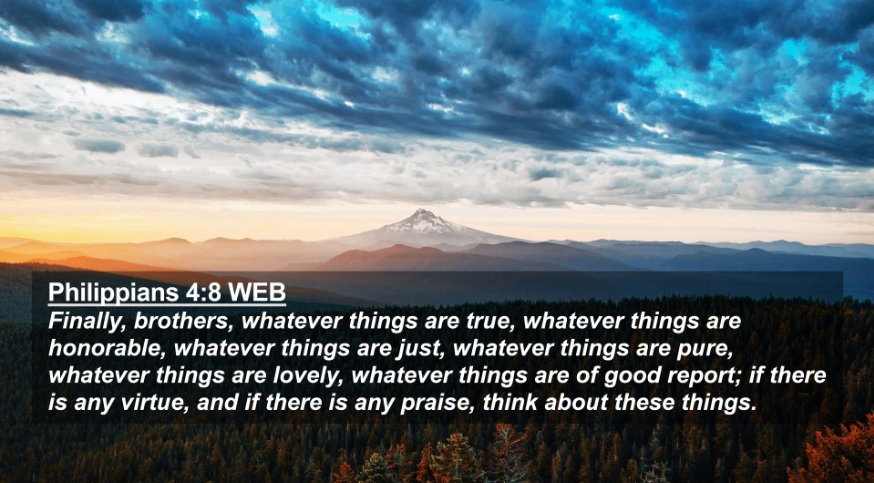“Go therefore and make disciples of all the nations…teaching them to observe all that I commanded you; and lo, I am with you always, even to the end of the age” (Matthew 28:19-20, NASB).
——————–
Contents:
1) Reflections on Psalm 2: The Lord Responds (Warren Berkley)
2) Sword Tips #10 (Joe R. Price)
——————–

-1-
Reflections on Psalm 2: The Lord Responds
Warren Berkley
Synopsis: God’s people can be confident that no enemy or enemies of God will ever defeat or destroy any purpose or plan of God.
Introduction
As already observed, this royal psalm depicts the enmity and rebellion against His God that David knew was part of his world. Yet, he knew something else. The uproar of nations and arrogant despots never threatens the Lord, nor can it ever obstruct His plans. While evil men confer, consult and conspire, here is heaven’s response:
He who sits in the heavens laughs; the Lord holds them in derision. Then He will speak to them in His wrath, and terrify them in His fury, saying, “As for me, I have set My King on Zion, my holy hill” (Ps. 2:4-6).
This had wonderful meaning for David. He knew “his” throne would someday be occupied by the Messiah (2 Sam. 7:13; Jer. 33:17; Acts 2:29-35). He recognized that this would come to pass without any concern that the vain plotting of men on earth would stop the coronation.
Indeed history confirmed that neither punishment of Messiah nor death kept God from fulfilling His promise. As it turned out, the plans and plots of evil men were used by God to accomplish His purpose: On the day of Pentecost, Peter declared that Jesus was “delivered up according to the definite plan and foreknowledge of God.” The apostle affirmed that this Jesus, crucified and killed by the hands of lawless men, God has raised! (cf. Acts 2:22-24). Thus, David’s “heart was glad,” assured that the evil devised against God’s coronation of Christ would not only not succeed, but God would use their plan for His purpose.
Divine Laughter
“He who sits in the heavens laughs.” When this is first read, it may seem odd. We associate laughter with humor or pleasure. There is ample evidence in human history of this physiological response, where mind and body contract spontaneously to something festive or comedic, typically with vocal expression. There is also a darker side to laughter, i.e., a maniacal excitement of evil intended or accomplished.
Divine laughter doesn’t fit either of these two categories. It isn’t merely a response to humor and certainly is not expressive of some evil intent. Rather, it is the writer’s way of telling us that God isn’t worried about the threats of His enemies on earth, singular or in league.
History confirms this. God’s plan was not defeated by the tower of Babel. Pharaoh wasn’t able to keep the descendants of Abraham in bondage. The Assyrians and Babylonians could not hinder God in any way; instead, He used them for His purposes. Seeking to preserve his power, King Herod sought to kill the Christ child. Yet, after Herod died, the family of Jesus came out of Egypt and settled in Nazareth. Likewise, as mentioned above, God’s plan was not defeated but carried out by those who crucified Christ.
Consider the following quotations by Dale Ralph Davis and G. Campbell Morgan:
God is not fazed! The mighty politicians, the dictators in their military fatigues, the terrorists with their bomb loads strapped to their backs—God is unimpressed. If you have imbibed a western sentimental view of God as the great soupy softie in the sky, then you will not understand this picture of verse 4. In fact, it will likely ‘offend’ you. But the psalm implies that nations may strut out their nuclear bombs—it only convulses the Almighty in laughter! To think that a few swaggering sovereigns could destroy God’s kingdom with such trifles! After you hear the kings in verse 3, you need to see this picture of the laughing God in verse 4 in order to get refocused on the truth (Davis).
This derisive laughter of God is the comfort of all those who love righteousness. It is the laughter of the might of holiness; it is the laughter of the strength of love. God does not exult over the sufferings of sinning men. He does hold in derision all the proud boastings and violence of such as seek to prevent His accomplishment of His will (Morgan).
Divine Vocal & Active Wrath
“He will speak to them in His wrath and terrify them in His fury.” With us, wrath may be felt but not expressed (in some cases, this is necessary in administering proper discipline or showing forbearance [cf. Jas. 1:19). God, too, can “relent” or hold back (cf. Joel 2:13). However, in this context—of rebellious men who plot against God—His wrath is vocal and active. His wrath was vocal on this page (in this passage), as the Lord is responding. His words and actions carry the just intent to “terrify them in His fury.” This is that element of fearing God that each believer should recognize: “It is a fearful thing to fall into the hands of the living God” (Heb. 10:31). We are blessed to know this about God, as was David.
Divine Affirmation
The schemers and rebels needed to hear this: “As for Me, I have set My King on Zion, My holy hill.” This carries the force of “this is what I will do. You cannot stop me. No matter the energy or numbers or power you think you have, My King will reign on Zion!” This conveys the absolute certainty of God’s innate power and His response to those who challenge Him.
This text was not only meaningful to David and those of his time; it became the “go-to” passage for early Christians who were suffering persecution. When Peter and John were threatened and as they prayed together about the difficulty, they referred to this psalm (Acts 4:23-31). To believe in the rule of Christ is one thing. To live under His authority is the point! Those who so live have the consolation announced in the second psalm.
Conclusion
What is so strongly expressed here has likely become one of our texts of consolation in 2020. Preachers have mounted pulpits with this Psalm open. Bible class teachers have postponed scheduled lessons to plug this passage into the curriculum. Men have prayed this psalm. Livestreams have broadcast that Christ is King. World leaders, revolutionaries, and dictators who stand against the Lord may not be listening to this or reading the Psalms. God’s people continue to rejoice in the Lord, knowing, singing, and thanking God—that those who are at variance with God, though they seem destined to win, will ultimately hear Him speak in His wrath. In closing, consider another quote from Dale Ralph Davis:
So you live in a world that hates. But you lift your eyes and see the throne that consoles. I rather like the way the Jerusalem Bible translates verse 4a: ‘The One whose throne is in heaven sits laughing.’ It is the same message as in Revelation 4: there is a throne—and One who is sitting upon it. Keep your eyes there. Sometimes that’s all that will keep you sane (Davis).
Sources
Davis, Dale Ralph. Way of the Righteous in the Muck of Life. Kindle Edition. Christian Focus Publications, 2010.
Morgan, G. Campbell. Searchlights from the Word: Being 1188 Sermon-Suggestions, One from Every Chapter in the Bible. Fleming H. Revell, 1926.
— Via Truth Magazine, Volume 65, No. 1, January 2021
https://truthmagazine.com/kindle/2021/2021-01-jan/08_Monthly_Theme_Lesson_03.htm
——————–

-2-
“And take…the sword of the Spirit, which is the word of God.” (Eph. 6:17)
Sword Tips #10
Joe R. Price
Let the words of my mouth and the meditation of my heart be acceptable in Your sight, O Lord my strength and my Redeemer. (Psalm 19:14)
We’ve all heard, “you are what you eat.” In a very real sense, we are what we think. Solomon said a man is what he thinks in his heart (Prov. 23:7). The Lord Jesus said, “A good man out of the good treasure of his heart brings forth good things, and an evil man out of the evil treasure brings forth evil things” (Matt. 12:35). We speak what is in our heart. Period.
Begin to make a deliberate effort to think about what you are thinking. Think on things that are true, noble, just, pure, lovely and commendable (Phil. 4:8). By thinking on such things your words will reflect godliness and righteousness.
Meditate on what is right and speak what is good.
This is acceptable in the sight of God, our Redeemer.
——————–
The Steps That Lead to Eternal Salvation
1) Hear the gospel — for that is how faith comes (Rom. 10:17; John 20:30-31).
2) Believe in the deity of Jesus Christ, the Son of God (John 8:24; John 3:18).
3) Repent of sins. For every accountable person has sinned (Romans 3:23; Romans 3:10), which causes one to be spiritually dead (Ephesians 2:1) and separated from God (Isaiah 59:1-2; Romans 6:23). Therefore, repentance of sin is necessary (Luke 13:5; Acts 17:30). For whether the sin seems great or small, there will still be the same penalty for either (Matt. 12:36-37; 2 Cor. 5:10) — and even for a lie (Rev. 21:8).
4) Confess faith in Christ (Rom. 10:9-10; Acts 8:36-38).
5) Be baptized in water for the remission of sins (Mark 16:16; Acts 2:38; 22:16; 1 Pet. 3:21). This is the final step that puts one into Christ (Gal. 3:26-27). For from that baptism, one is then raised as a new creature (2 Cor. 5:17), having all sins forgiven and beginning a new life as a Christian (Rom. 6:3-4). For the one being baptized does so “through faith in the working of God” (Col. 2:12). In other words, believing that God will keep His word and forgive after one submits to these necessary steps. And now as a Christian, we then need to…
6) Continue in the faith by living for the Lord; for, if not, salvation can be lost (Matt. 24:13; Heb. 10:36-39; Rev. 2:10; 2 Pet. 2:20-22).
——————–
Tebeau Street
CHURCH OF CHRIST
1402 Tebeau Street, Waycross, GA 31501
Sunday: 9 a.m. Bible Classesand 10 a.m. Worship Service. Congregational Song Service: 5 p.m. for every first Sunday of the month.
Wednesday: 7 p.m. Bible Classes
evangelist/editor: Tom Edwards (912) 281-9917
Tom@ThomasTEdwards.com
https://thomastedwards.com/go/all.htm (This is a link to the older version of the Gospel Observer website, but with bulletins going back to March 4, 1990.)